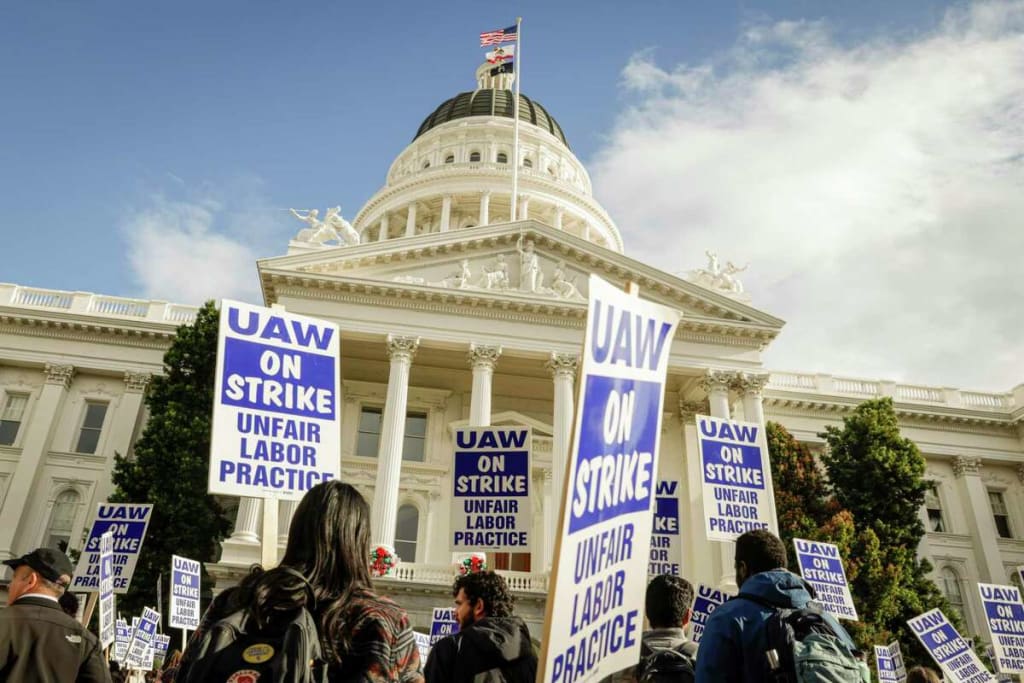Strikes on US universities
Why US universities are facing waves of strikes?

In recent years, universities in the United States have been facing a wave of strikes by their faculty and staff members. The strikes have been caused by a variety of factors, including low pay, inadequate benefits, and a lack of job security. As a result of these strikes, students have been left to bear the brunt of the effects.
One of the primary reasons for the strikes is the growing income inequality in the United States. Despite the fact that universities have seen significant increases in tuition and government funding, many faculty and staff members have not seen their salaries increase at the same rate. This has led to frustration and dissatisfaction among workers who feel they are not being fairly compensated for their work. Additionally, many universities have increasingly relied on adjunct and part-time faculty members who earn significantly less than their full-time counterparts and are not eligible for benefits such as health insurance or retirement plans. This has led to a growing divide between full-time and part-time faculty members and has made it more difficult for universities to attract and retain talented teachers and researchers.
The effects of these strikes on students have been varied. In some cases, classes have been cancelled or delayed, and students have been forced to miss out on valuable educational opportunities. In other cases, students have been left without adequate support from faculty and staff members, making it more difficult for them to succeed in their studies. Additionally, the strikes have caused stress and anxiety for many students, who worry about the impact of the strikes on their academic progress and their future job prospects.
Furthermore, strikes can have ripple effects on the academic community as a whole. Conferences, research projects, and other academic activities may be postponed or cancelled, leading to delays and setbacks that can have a long-lasting impact on the advancement of knowledge in a particular field. This can also make it more difficult for students to gain valuable experience and connections that can be crucial to their success in their chosen career paths.
To address these issues, universities will need to take a more proactive approach to addressing the concerns of their faculty and staff members. This may involve increasing salaries, providing better benefits, and offering more job security. Universities will also need to communicate more effectively with their students, providing regular updates on the progress of negotiations and efforts to resolve the strikes. It is important that universities take students' concerns seriously and work to ensure that they are able to continue their studies without undue disruption.
In some cases, students have even joined in the strikes in solidarity with their faculty and staff members. This demonstrates a growing sense of community and support among members of the academic community who are united in their goal of creating a more equitable and supportive environment for learning and research.
However, strikes can also lead to tension and conflict between students and faculty members who may have differing opinions on the best way to address the issues at hand. It is important for all members of the academic community to engage in respectful and constructive dialogue to find solutions that benefit everyone.
In conclusion, the wave of strikes facing US universities highlights the need for greater attention to the concerns of faculty, staff, and students. By addressing these concerns, universities can create a more equitable and supportive academic community that is better equipped to meet the needs of all its members. It is crucial that universities take these strikes seriously and work to resolve them in a way that ensures that students are able to continue their education without undue disruption. Ultimately, the success of these efforts will depend on the willingness of universities to listen to the concerns of their workers and take concrete steps to address them.





Comments
There are no comments for this story
Be the first to respond and start the conversation.